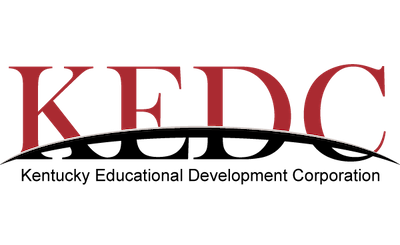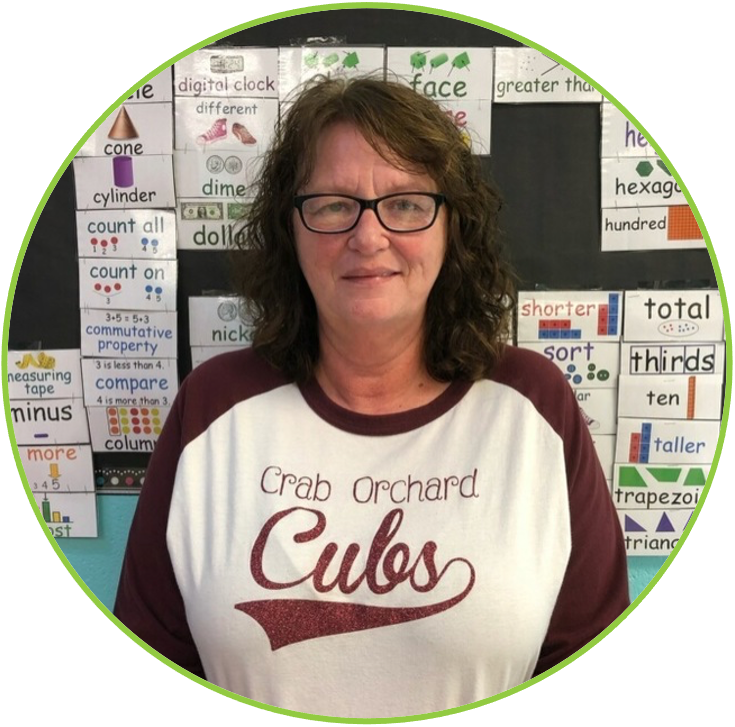
Teacher Q&A: Meet Roxanne Mullins
Currently in her 20th year as an educator, Roxanne Mullins teaches kindergarten math at Crab Orchard elementary, located in Crab Orchard, Kentucky. And, thanks to a change to the state’s teacher classification system, she’s on track to advance her career by earning her Rank I certification.
Roxanne is enrolled in a Continuing Education Option (CEO) Plan II program which offers rank change and advancement through micro-credentialing. Developed in partnership with BloomBoard, a leading provider for educator advancement via micro-credentials, KEDC’s “Foundations in Teaching and Learning” is open to Kentucky teachers to earn Rank I or Rank II through job-embedded learning experiences in their own classrooms.
We connected with Roxanne to learn more about her experience pursuing a rank change through the micro-credential based program.

Q: How did you hear about the Foundation in Teaching and Learning program?
- A: I’m a member of several different groups, and received an email asking if I’d like to participate in the pilot program, and I agreed. I was very interested in getting Rank I. I signed on to the original pilot, and have been enrolled in the actual CEO Plan II program for about four months now.
Q: What motivated you to pursue a rank change? Why now, and why did you choose this program from KEDC and BloomBoard?
- A: I was interested in my own growth as an educator. Previously, I considered completing the national board certification, but was apprehensive about the cost and time investment. When I first found out about the Foundations in Teaching and Learning program I was immediately interested. The program seemed like it would be a better fit for where I was in my career. The timing just seemed right.
Q: What were your biggest questions or concerns when considering enrolling in Foundations in Teaching and Learning? How were they answered or resolved?
- A: I wanted to know how much it would cost, what would be expected of me and how much time it would take to complete the program. KEDC was very knowledgeable, and I appreciated that they took the time to find answers to all of my questions. They also helped me determine how I’d pay for the program.
Q: What’s the cost of the program? Is financing available?
- The total cost of the program is $5,500. This can be paid up front, or through financing options offered via a partnership between BloomBoard and Climb. I opted for the financing option, which took only a few minutes to set up. The payments are reasonable enough that I’m able to pay more than what’s required each month, which is a definite plus.
Q: Did you consider a master’s degree program, or becoming National Board certified, to achieve rank change? If so, why did you choose CEO Plan II instead?
- A: I really appreciate that this program allows you to work at your own pace, and that much of the work is job-embedded. The program is anchored in the 10 Kentucky Teacher Standards, and since it’s micro-credential-based, I have the opportunity to really demonstrate the skills and competencies I’m learning. I’m practicing new strategies with my students in real-time. I really like that there’s no hidden agenda within the program, and I don’t have to worry about having to pay to take – or even retake – a costly National Board exam.
Q: How might you explain micro-credentialing to your peers or colleagues?
- Micro-credentials have really opened my eyes. I’ve embraced that times are changing in education, but things change – and change is good. The program requires completion of 12 core micro-credentials focused on classroom management, assessments and instructional strategies. After finishing those, you’re able to select more personalized competencies to work on, focusing on topics like blended learning, school culture and social-emotional learning (SEL). The micro-credentials are time consuming, but you want to take your time. Rather than rushing through, it’s beneficial to take your time and thoroughly complete each requirement. I really enjoy that my progress is demonstrated through actual instruction, all I need to do is press record to capture the evidence. The requirements for completing each micro-credential are very clear, and the KEDC’s team is always available to provide support if you need it.
Q: How does the flexibility of the Foundation in Teaching and Learing program work with your schedule as a full-time teacher?
- A: The flexibility of this program is phenomenal. I’m working at my own pace, and the course material feels like a natural fit to what I’m already doing in the classroom. It doesn’t feel like I have an extra burden on me because of the program. I’m putting what I’m learning into action, and the knowledge I’ve gained is making me a better teacher. Coaching is built-in to the program, and every participant is assigned a KEDC Program Mentor who is available to guide your progress, provide feedback and even support the capstone project. Coaches will reach out at least once a month, and are there to work side-by-side with you, and will help find an answer even if they don’t have one. I’ve really appreciated having access to that level of support.
Q: How has a job-embedded program enhanced your instructional practice? How has it helped you acquire new skills, or embrace recent challenges in your classroom?
- A: After 20 years of teaching, you can feel stagnant – like you’re doing the same thing over and over again. By participating in this program, I’m encouraged to consider how I can incorporate new skills and strategies in the classroom. For example, prior to the program, I was providing assessments the same way year-after-year. Now, I’m realizing that there are so many different ways you can assess students’ progress, my eyes have totally been opened. I never thought that my kindergartners would be able to self-assess, but once you get them going you see that yes, they can do it. I feel comfortable encouraging my kiddos to raise their hands and say “Hey, I need extra help!”. As a seasoned teacher, I really appreciate having access to new evidence and resources, like Ted Talks, through this program. It’s really brightened up my classroom environment – we’re all a team, and I want everybody to succeed.
Q: What are you most looking forward to upon earning Rank I?
- A: Getting it done! Also, recognizing that at my age and after the years I’ve put in, I was able to step into something new, see it through and complete it. It’s the satisfaction of being able to say, “I did it”.
Q: How will earning a Rank I help you reach your goals as a teacher? How might it impact your students or colleagues?
- A: I’m using everything I possibly can from the program to support my students and better myself. For colleagues who are feeling “stagnant” in their careers (as I once was), I think my experience might help encourage them to take a chance and do something new.
Q: What would you say to encourage other teachers considering a rank change?
- A: I’d really like to advocate for fellow educators to consider pursuing their Rank II or I change. In fact, after discussing my experience with KEDC and BloomBoard’s program, two people in our school building are going to pursue enrollment. My goal is to help others where I can, even if it’s just helping them record a class session. I feel like I’ve been able to demonstrate that this more flexible, micro-credential option is a lot less painless than other platforms. Administrators and principals should encourage their teachers to further their education, and proactively provide info about opportunities to do so. We need to share these resources with people.
Want to learn more about the Foundations in Teaching and Learning Program?
Complete the form below to schedule a consultation call with a program expert or click the learn more button to read more about the program.